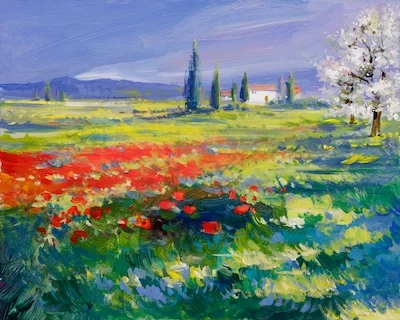Velvet Terrorism
Pussy Riot at The Polygon

Installation view of “Velvet Terrorism: Pussy Riot's Russia,” 2024, at The Polygon Gallery (photo by Akeem Nermo)
“Freedom doesn’t exist unless you fight for it every day.”
The phrase is handwritten on a corner of the gallery wall at The Polygon Gallery, near to the ground and crowded by copious amounts of text, photographs, and other imagery that tells the story of the exiled Russian performance group Pussy Riot.
Velvet Terrorism: Pussy Riot’s Russia, on view until June 2, documents the group’s relentless political actions towards freedom in their home country. Their story is harrowing — the exhibition chaotic, overwhelming, glorious and good looking.
The journey through the show is an odyssey of chronology not for the faint of heart. Neon-coloured walls, washi tape, handwritten wall text, and video work sound in competition, loudly declaring the group’s punk sensibilities, founded in 2011 by Nadya Tolokonnikova and Maria (Masha) Alyokhina. The show is the product of Alyokhina’s fastidious collection and preservation of documentation, photography, video work, and memories of the last 12 years that saw many members of the group imprisoned, surveilled and harassed by the Russian police and the Kremlin, with many members currently arrested in absentia from their home country and now living in exile.

From the action “Punk Prayer,” Cathedral of Christ the Saviour, Moscow, 2012 (photo by Mitya Aleshkovsky)
Pussy Riot’s reputation is preceded by the band’s famous arrest in 2012 and subsequent imprisonment of three of its members in Russian gulags for “hooliganism motivated by religious hatred,” after an action performed in their now signature balaclavas at Moscow’s Cathedral of Christ the Saviour entitled Punk Prayer. The exhibition moves through a history of the group’s political actions — works that plainly taunt Russian President Vladimir Putin — and details the severity of Masha and Nadya’s abuse in prison, which caused both to protest their treatment by hunger strike.
In Velvet Terrorism, Pussy Riot’s works are distinguished by a sense of humour. Opening the exhibit is the video work PISS from 2022, a polished artist film showing a balaclava-clad Rioter drinking a large quantity of water, and then, lifting her dress to expose her namesake genitalia, she crouches over a portrait of Putin and anoints his image in urine. It is a wild and flagrant show of disrespect, a total hoot to watch. Throughout, small hand-drawings and text written in Sharpie on the fluorescent walls give the documentation a graffiti like edge, while the photographs are set unframed, taped at the edges. By sheer looks, this show fed the ’90s Riot Girl in me — these are the bedroom walls I wished I had, along with the courage for outright rebellion towards the system.

Installation view of “Velvet Terrorism: Pussy Riot's Russia,” 2024, at The Polygon Gallery (photo by Akeem Nermo)
From an installation perspective, the s-shaped corridors that snake through the Polygon’s main gallery are claustrophobic. The intensely busy media and members’ tour I attended found hundreds of us shuffled through slim hallways that fed into a small room. Only one way in and one way out. Were we supposed to feel like we were in prison? I think so? Meanwhile, the abundance of text at every turn is a clever thumb of the nose to the Gen Z culture of TLDR (a.k.a. too long, didn’t read). Pack your patience and mind how you feel about small spaces.
But speaking of Gen Z, one thing I can’t seem to make sense of is Pussy Riot’s shrewd awareness of their own visual presentation. The installation, while unabashedly punk in fashion, is infinitely Instagrammable and undeniably cool. Bright colours, neon tape, video projection and really fabulous outfits abound. The trademark ski masks, are, by now, iconic. It is as if Pussy Riot understood something in 2011 about how to market a revolution in the language of today — a language we, as a culture, had not yet comprehended.
“Pussy Riot was never a punk band,” says their music producer Alexsander Cherparukhin as he introduced their live show Riot Days, performed at The Pearl in Vancouver last March. He continues, “They were never a band at all.”
While Tolokonnikova once described the group in terms of “a movement,” as the show tours through art museums in Denmark, Montreal, and now Vancouver, this movement is contextualized as art. Perhaps the longstanding swagger of their presentation, years before we knew what swagger was, pivots their actions towards something like a durational performance. Their knowing visuality — while celebrating a freedom of spirit in a place where such freedom is impossible — is purposefully constructed: neither wholly activism, nor art, but the performance of activism as art. ■
Velvet Terrorism: Pussy Riot’s Russia is on view at The Polygon Gallery in Vancouver until June 2.
PS: Worried you missed something? See previous Galleries West stories here or sign up for our free biweekly newsletter.

The Polygon Gallery
101 Carrie Cates Court, North Vancouver, British Columbia V7M 3J4
please enable javascript to view
Wed to Sun 10 am - 5 pm, Thurs until 8 pm
